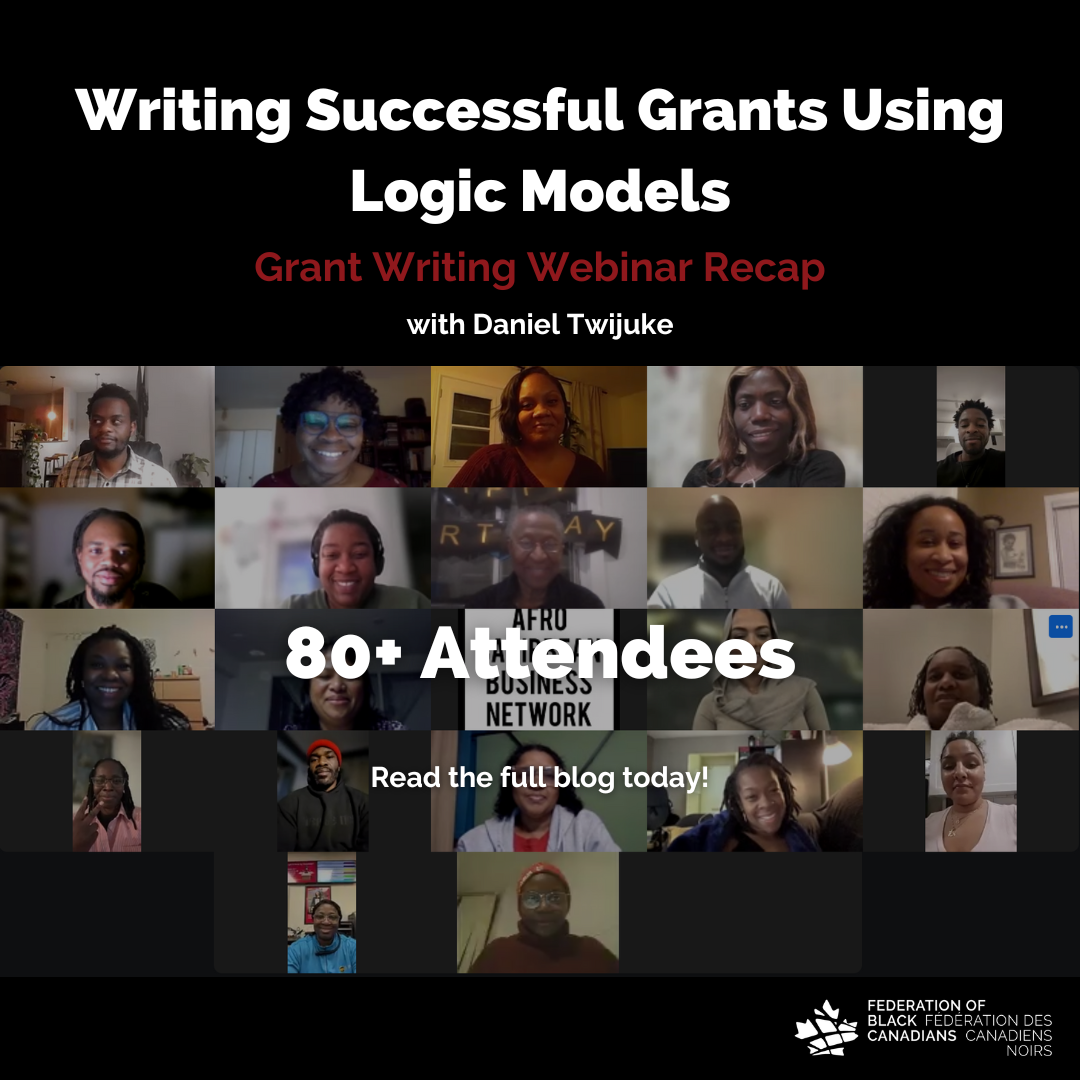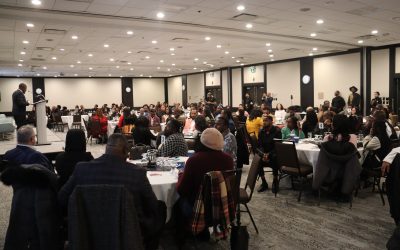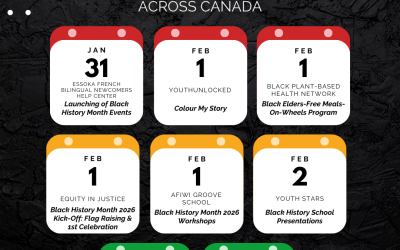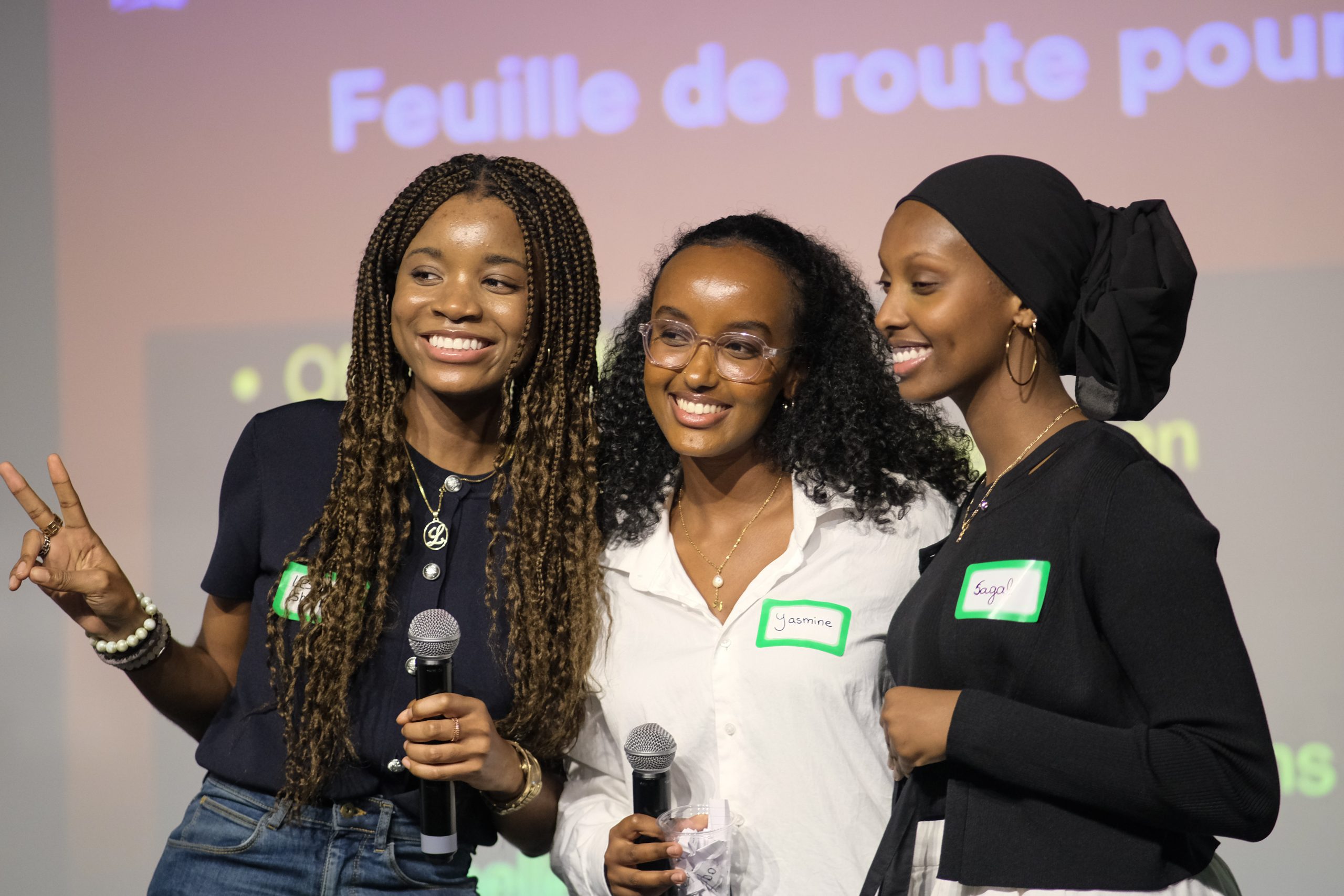On November 30th, the Federation of Black Canadians (FBC) hosted an engaging virtual session titled Grant Writing Webinar: Logic Models to Answer Grant Questions. This follow-up to our earlier introduction to grant writing webinar, led by Executive Director Chris Thompson, aimed to provide practical insights into using logic models to create compelling grant proposals.
Meet the Hosts
FBC’s own funding specialist, Daniel Twijuke, brought his expertise from four years of consistent work in the grant writing field to lead the session. His clear, detailed explanations were complemented by Arielle Prescod, who delivered the land acknowledgment and moderated the evening’s discussion.
Key Highlights from the Webinar
With over 80 attendees, the session was packed with valuable information for anyone navigating the grant writing process.
Understanding Logic Models
Daniel began by breaking down the key components of a logic model, essential for effectively communicating the impact of a program in a grant proposal. These components include:
- Assumptions
- Inputs
- Activities
- Objectives
- Outputs
- Outcomes
Daniel emphasized how each part contributes to telling a program’s story and how it aligns with funder priorities.
Walking through a Practical Example: A Fictional Program
To provide a hands-on understanding, Daniel walked participants through a fictional example of a “COVID Youth Employment through Digital Skills” program. This example demonstrated how to create a logic model, including crafting a SMART (Specific, Measurable, Achievable, Relevant, Time-bound) objective for the initiative.
Evaluation and Measuring Outcomes
One of the key takeaways was the significance of evaluating program outcomes to strengthen grant proposals. Daniel outlined tools like surveys, focus groups, and testimonials to demonstrate program impact.
Aligning Goals with Funders
In addition, Daniel highlighted the importance of aligning your program’s goals with both your organization’s values and the funder’s priorities. For example, an agriculture-focused organization would be better suited to apply for agricultural grants rather than programs targeting unrelated sectors.
Budgeting Resources
Furthermore, the session also covered budgeting considerations, including staff, partnerships, in-kind support, and specialized expertise from consultants. These elements are critical for ensuring program feasibility and success.
What’s Next?
This webinar demonstrated the immense value of logic models in crafting grant proposals that are not only comprehensive but also aligned with funders’ expectations.
As Daniel concluded, “A well-structured logic model not only tells a compelling story but also gives funders the confidence that your program will deliver tangible results.”
Stay Tuned for More!
The FBC team will continue to offer grant writing resources through this series to empower organizations in their grant application journeys.
Missed the session? Sign up to our Black Builder’s Network to catch the drop of the the full webinar when it releases.
Don’t miss future updates—subscribe to our newsletter for more valuable insights and resources!







